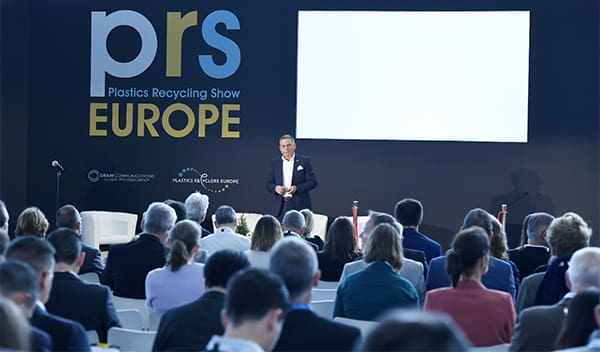
Recycled Compound – Precisely the Point
VEKA Recycling‘s new PVC-U recycling plant sets out to resolve the conflict of producing sustainable plastic products against a traditionally unreliable source of raw material.
Many processors, across a range of industries and markets, face a key conflict: the pressures of becoming and being seen to be sustainable; against the technical and logistical barriers of sourcing sustainable – therefore, recycled – compounds.
The collection and processing of waste has, in general, become a sophisticated, well-managed and precise business. That is generally true of post-consumer and industrial PVC-U, a relative niche sector within rigid plastics that is dominated by the home improvement, replacement window and door industry, or double glazing if you prefer.
This is a sector that traditionally has done very well to recycle its old frames, with an estimated 80% of those removed following an audited trail from removal to remanufacture as a compound. This, of course, leaves around 20% unaccounted for, although there is some confidence that, somehow, it remains in the system; it has value after all.
The problem is that the recycled PVC-U compound that has traditionally been offered to processors has often been inconsistent in both its quality and also, its long-term consistency and availability. Much of it also comes from unknown and unaudited sources. All of which has left processors with the problem of facing market pressure to produce sustainable products against a fluctuating and unreliable raw material supply. Which core problem is at the heart of the completion by VEKA Recycling Ltd – parent of VEKA Compounds – of what is reputed to be Europe’s most advanced facility created to recycle old PVC-U window and door frames, located at Wellingborough, Northamptonshire.
As Managing Director of VEKA Recycling Ltd, Simon Scholes says the objectives for the plant have been very clear from the outset:
“At the core of our commitment is recognition of the need to professionalise the recycling of PVC-U and, in doing so, to make it, in most respects, an entirely unremarkable part of the plastics industry. Therefore, removing any doubts that may still linger about integrity. And the focus of this quest is the pursuit of high quality and precision throughout the cycle.”
The experience gained from the opening by VEKA Group of Europe’s first specialist PVC-U frame recycling plant in Behringen, Germany, as far back as 1993 and another in France since has imbued the company’s engineers with unrivalled experience in the re-processing of old frames as well as virgin offcuts. Always working towards an end-goal of producing the highest possible quality of PVC-U compound to return to the market.
The numbers read well for the Wellingborough facility: the company’s most popular pellet is Grey white 9002.001, which shows impurities of <0,02%; colour L 89 (+1) and an apparent density of ≈0,85 g/cm3.
Whilst these figures are impressive, it is the consistency with which these standards are delivered that is the breakthrough, says Simon:
“The VEKA Recycling Ltd commitment is that our compounds can be trusted to perform reliably to the stated quality, in the volumes and to the schedule required. Crucially, we are able to deliver a product that is processed entirely within our own facility within the UK, which further improves the sustainability of the material.
“A further key element is that we control the entire process ourselves, which few companies within these shores are able to do. It is always worth asking about the trail.”
That PVC-U is an extraordinary and valuable resource is undeniable. But only if it can be returned to the market for re-manufacture again and again will its true value be realised, flying the flag for sustainable plastics. And that can only be achieved if it is re-processed precisely and consistently to enable this to be a commercial reality. VEKA Recycling appears to have achieved just that.

VEKA Compounds
01933 424999
Website
Email






